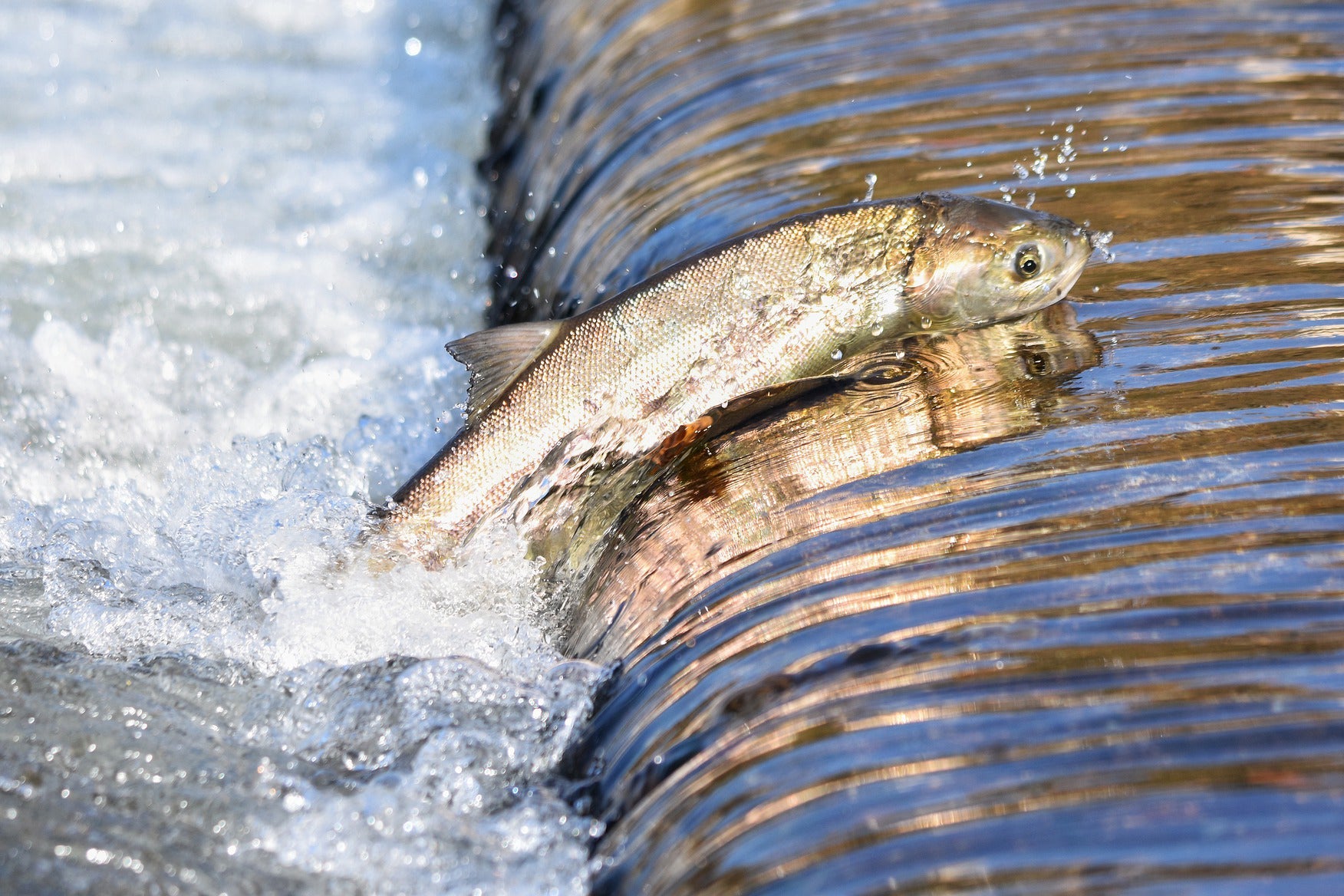
Today we’d like to introduce you to some popular plants for your balcony or garden that are harmless and even healthy to you and your furry friends! We’ve collected some herbs and roots, but also many colourful flowers.
Healthy Herbs for Pets – Medicinal Plants for a Strong Immune System and General Wellbeing
Herbs are not just healthy for us humans, but also our cats and dogs! They contain many valuable vitamins, minerals and secondary plant substances.
Some have also been represented in medicine for centuries and carry healing properties for various ailments and diseases. These medicinal herbs can strengthen the immune system, have anti-inflammatory effects and detoxify the body of your four-legged friend. You can use natural spices, roots or shrubs to boost your pet's organism as well as treat a number of ailments. However, in pregnant and lactating animals, or in case of a chronic illness, you should generally consult with your veterinarian first. Here are some particularly healthy herbs for dogs and cats:
Basil
Basil is one of the most popular culinary herbs and can even be cultivated on your windowsill. Mostly used for pasta dishes, it also finds its way into salads or pesto. In addition to its spicy aroma, basil has numerous health-promoting properties for humans and animals alike. A paste of freshly grated basil is a natural first aid remedy for insect bites. Basil relieves your dog's swelling and pain and has an anti-inflammatory effect.
Basil works:
- supportive of the digestive system
- antibacterial
- anti-inflammatory
- relieves pain
- decongestant
Caution: cats should only get a small amount of basil occasionally. If the cat eats too much of it, as with eating all plants and herbs, vomiting can occur. However, basil does not endanger the health of your house tiger.
Parsley
Just like basil, parsley is among the herbs most commonly used in the kitchen. But parsley is much more than just a simple kitchen spice: a natural diuretic, it has a draining effect on dogs and cats. It can be used to treat bladder and kidney infections of your four-legged friend. In addition, the robust plant can have a relaxing effect on muscles after long walks.
Parsley works:
- antibacterial
- antispasmodic
- draining
- diuretic
- invigorating
Caution: the dosage is crucial. Larger dogs should not be fed more than a teaspoon of parsley daily, smaller dogs even less. Cats should not receive more than half a teaspoon. If your animal has issues with calcium oxalate stones, you should avoid feeding parsley, because this herb contains oxalate and can have a negative impact on your pet’s health.
Thyme
The herbaceous thyme shrub is an old medicinal and spice plant mainly used to treat respiratory diseases and gastrointestinal complaints. Freshly brewed thyme tea can help your pet with cough and throat infections, but can also have an expectorant effect. The medicinal herb can also provide relief for gastrointestinal complaints, and the essential oils contained in the plant have a disinfecting effect.
Thyme works:
- appetizing
- repels worms
- disinfectant
- antibacterial
- antiviral
Caution: animals with liver and kidney disease should not receive thyme, because the ingredient thymol is an essential oil and can have adverse effects on these conditions.

Turmeric
The East Asian tumeric tuber is technically not one of our garden herbs, but it is gaining popularity in European gardens. The root is a traditional medicinal plant and highly valued not only by botanists and healers. Over 10,000 scientific papers have been published on the health-promoting tuber, which is now increasingly used in veterinary medicine.
Turmeric works:
- highly anti-inflammatory
- digestive
- immunostimulating
- wound healing
- stimulating the bile
- Pain relieving for arthritis
- anti-cancer
Caution: turmeric is not suitable as a supplementary food for cats.
Turmeric has a blood-thinning effect and should not be given before surgery. If your dog gets blood-thinning medication, you should also refrain from feeding turmeric. Before you administer turmeric and your dog is on any medication, prior consultation with the veterinarian is required. In addition, the tuber is biliary, which can be problematic in animals with gallstones.
Mint
Mint enjoys temperate climate and impresses with its intense smell and taste of menthol. This popular garden herb has many health benefits for your pet, because mint is proven to help with abdominal pain and to relieve cold symptoms.
Mint works:
- digestive
- against bad breath
- for abdominal pain
- against tension
- with irritable bowel symptoms
- antibacterial
Caution: mint should only be added occasionally. Permanent administration can have a negative effect on the liver and kidneys. In dogs and cats with preexisting diseases, discuss administering mint with your veterinarian first. Polish mint should not be fed at all, because unfortunately it is poisonous for our four-legged friends.
Rose Hip
The glowing red fruits of the rose hip plant are an eye-catcher in autumn. Your dog or cat will benefit from rose hip through their numerous ingredients such as vitamin C, flavonoids and galactolipids. Rose hip supports your pet’s immune system and has a positive effect on the musculoskeletal system. That is why rose hips are administered primarily for osteoarthritis, arthritis and other joint diseases. They can be dried, ground and mixed daily with your dog or cat's food.
Rose hip works:
- anti-inflammatory
- immunostimulating
- for osteoarthritis and arthritis
- relieves pain
- diuretic
- antipyretic
Caution: rose hip has hardly any side effects to your pet. However, dogs or cats with bladder weakness or kidney problems should not be given rose hips. In addition, the daily dose should not be more than a teaspoon of rose hip powder for large dogs, less for smaller animals.
Barley Grass
Barley grass is one of the modern superfoods and is often sold as a dietary supplement. Barley grass is particularly known for its high chlorophyll content. It supplies your pet's blood with important oxygen and also contains a high proportion of calcium, magnesium and phosphorus. This has a positive effect on the bone and muscle for mation in dogs and cats.
Barley grass works:
- supporting acid balance
- draining
- basic
- relaxing
- immunostimulating
Caution: barley grass can lead to allergic reactions, digestive problems, nausea and vomiting when overdosed. Make sure that your pet does not get more than ½ teaspoon of barley grass per day.
Nontoxic Flowers in the Garden
What would a garden or balcony be during the warmer seasons without bright flowering plants? While many magnificent plants such as hydrangeas, oleanders and rhododendrons are poisonous for your four-legged friend, there are also a lot of flowers that your dog or cat can nibble on extensively. Here are some pet-friendly garden plants that impress with colorful flowers and are also a pleasure for your pet.
Lavender
This strongly aromatic Mediterranean plant is not only known to healers for its calming effect. However, rumors persist among cat owners that the plant may be poisonous for cats. Not to worry, though: lavender is safe for cats and dogs. Regular use in cats can lead to liver problems, but as a garden or balcony plant, lavender is harmless. But because of its strong aroma, most pets keep their distance from this plant anyway.
Hibiscus
The East Asian hibiscus is completely harmless to animals. The domesticated types of hibiscus are particularly pet-friendly. The hibiscus has large spreading flowers and is available as indoor or outdoor plant.
Tagetes
Tagetes, student flower, Turkish carnation or dead flower is an easy-to-care-for plant with bright orange-red flowers. It blooms all summer long and is particularly popular in borders or as a balcony plant. In addition, pet owners can be completely relaxed with this flower as it is completely non-toxic for dogs and cats.
Dahlia
No two dahlias are the same. There is hardly any plant species that differs as much within its genus as the dahlia. They are also non-toxic plants for humans and animals and are often used for decoration on food and drinks.
Sunflower
The proud sunflowers are not only a beautiful sight in fields, in gardens or on the terrace, their seeds are also the raw material for the popular sunflower oil. For animals, sunflower seeds are a protein-rich food. The sunflower can be safely used in your garden or as a houseplant.
Conclusion
As you can see, there are a lot of plants that pose no danger to your four-legged friend and are real eye-catchers. Pet-friendly plants bring colour to your green oasis and are also completely harmless. Medicinal herbs can also bring your garden to life. They not only spread their intense aroma, but also offer a lot of healthy nutrients and healing effects. We hope that we were able to encourage you to occasionally mix healthy garden herbs in with your pet’s food, and, if there are mild ailments, first try natural herbal treatment from your home garden.



